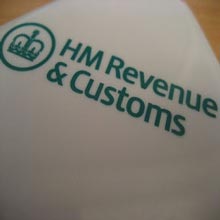
Not a day goes by without taxes being spoken about in parliament, in the media and also in our homes. 2010 has been particularly intense with regards to taxes, the new government brought with it new changes and new taxes. Not only that but HMRC have been in good form themselves, with the huge deficit looming over the country like the darkest of rain clouds, HMRC have been under more pressure than ever before to help reduce the debt, and that means chasing people down, in many cases without proper cause.
The bigger problem is that HMRC's recent computer error has led to a large number of contestable cases. There are a number of things you can do to ensure you have your back covered, so that if you think you have an unfair tax letter turning up at your house you have enough ammo to fight your cause.
Firstly never be afraid to stand up against HMRC if you think they have made a mistake. If you receive a letter asking for unpaid tax examine the figures carefully and match them against your own records. Always keep your financial records well organised, that way, if you receive a tax statement that you believe to be incorrect you can immediately challenge any discrepancies you find , before it actually becomes a tax bill.
Of course any bill you challenge will have to be backed up with evidence, in the form of wage slips, pension contributions and other financial documents. Remember, if you think you've overpaid tax then you can go back and reclaim money from years passed, the time scale is usually capped at four years but in some cases you may be able to go back even further.
It's worth bearing in mind that certain people are more at risk of tax errors than others. For instance people who have more than one income source or people who've changed jobs.
If you have underpaid then be aware that if that if it's from a number of years ago HMRC may not have the power to claim it. Any tax claim from before 2008 will be seen as too old so you could get away with not paying. Another avenue to escape potential charge is if the error is very small, HMRC should write off errors that are below £300 so be sure to check the amount.

